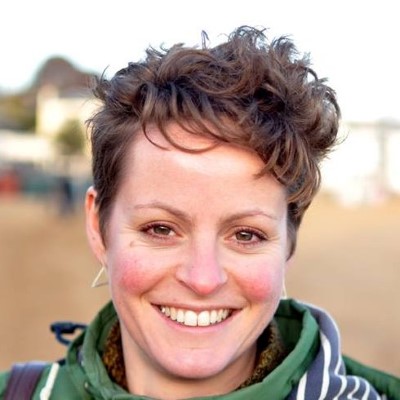As the restrictions on all our activities loosen, we need to be able to assess our own risk from coronavirus, to help us decide what activities to join in with and what to avoid.
We are used to managing everyday risks in our lives. If we can understand our risk from coronavirus we can take it into account and balance it against other risks. For instance, is it better to meet a friend for a socially distanced walk in the park, or to stay at home? The former may come with a small risk of catching coronavirus, but the latter comes with risks of its own, including those of loneliness and physical inactivity. The information on this page is intended to help you understand what your risk from coronavirus is, to help make these everyday decisions.
When considering the risk of coronavirus it is important to consider 2 separate risks. Firstly, there’s the risk of catching coronavirus, which depends upon both the number of people in the community who have it and the activity being undertaken. Secondly, there’s the risk that coronavirus poses to you as an individual, if you were to catch it.
1. The risk of catching coronavirus, given the number of people who have coronavirus
You are at greater risk of catching coronavirus the more people there are in your community who have it.
Estimates of the numbers of people with coronavirus in the community and the numbers of people catching it each day are available from the ONS Infection Survey here. This information is updated each Friday.
Interactive maps with local information on the numbers of people who have died from coronavirus are also published by the ONS here. This can help to identify areas where coronavirus has been more widespread. The information is updated approximately monthly (most recently on 12 June).
2. The risk of catching coronavirus while doing the particular activity
Coronavirus is more likely to be passed on through some activities and in some circumstances than others. Taking the following precautions will help to minimise risk of catching coronavirus:
- Stay 2 metres (3 steps) away from anyone you don’t live with.
- Wear a face covering over your nose and mouth when it's hard to stay 2 metres away from people. Your face covering mainly protects others, so when considering your own risk the most important factor is whether others are wearing one.
- Keep activities outdoor if possible, and if this is not possible keep the room well ventilated.
- Avoid activities where people are singing, shouting or otherwise projecting their voices.
- Wash your hands thoroughly and often with soap and water, or use hand sanitiser if this isn’t possible.
- Cover your mouth and nose with a tissue or your sleeve (not your hands) when you cough or sneeze.
- Put used tissues in the bin immediately and wash your hands afterwards.
- Avoid touching your eyes, nose or mouth.
Up to date guidance is available from the NHS here.
3. The risk to you of coronavirus if you catch it
About 1 in 100 people who have coronavirus will die from it, but not everyone has the same level of risk. Here are the key risk factors for severe outcomes from coronavirus.
Age
Although risk of catching coronavirus for people who live in the community isn’t affected by age, the risk of the worst outcomes is: age is the most important determinant of the risk of dying from coronavirus. The Intensive Care National Audit and Research Centre have studied around 10,000 people critically ill in hospital with coronavirus in the UK. After taking into account people’s health, sex, ethnicity and other characteristics they found that, compared to someone aged 60, the risk of dying was about doubled for someone aged 70 and almost quadrupled for someone aged 80.
Sex
Males have a higher risk of dying from coronavirus at all ages than females, although males and females are at similar risk of catching coronavirus. At most ages risk for males is about double that for females.
Ethnicity
People of minority ethnicities have higher rates of mortality from coronavirus than white people. The reasons for this higher risk are complex, and are likely to be due to higher risks from coronavirus once a person has caught it as well as higher chances of catching coronavirus.
Some underlying conditions
Certain underlying conditions increase the risks from coronavirus. There is information about which health conditions may make people vulnerable to coronavirus here.
And remember...
You have the right to decide what level of risks you're willing take. You should never feel pressured to do something that makes you uncomfortable, unless it's a legal requirement. Age UK will be keeping our website up to date with the latest information about coronavirus to help you make informed choices that are right for you.

More articles by Dr Webb
Dr Elizabeth Webb is a Senior Research Manager at Age UK. She has an MSc in Epidemiology from the London School of Hygiene and Tropical Medicine and a PhD in Social Epidemiology from University College London.
- What's the science behind the Government's guidelines?
- Can we predict how coronavirus will progress?
- Why are older people more at risk from coronavirus?
- How can we recognise when we have coronavirus?
- How close are we to a vaccine?
- What is R?
- How do we keep R below 1?
- What's the updated picture of coronavirus and older people?
- Is there an increased risk of coronavirus for BAME older people?
- What is k and who are the super-spreaders?


